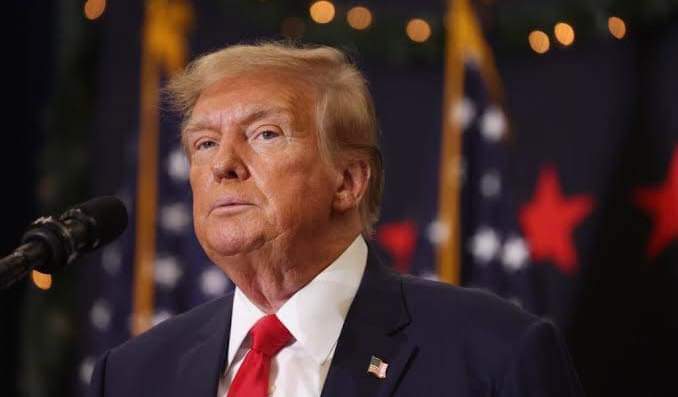Trouble Looms As Trump Kick-Start Mass Deportation Of Immigrants
Donald Trump’s plans for his first day in the White House are quite ambitious, to say the least.
After being asked if he’d be a dictator if re-elected, Trump responded that he wouldn’t be, “except for Day 1”.
His agenda includes mass deportation of migrants, rolling back Biden administration policies on education, reshaping the federal government by firing potentially thousands of federal employees he believes are secretly working against him, and pardoning people who were arrested for their role in the riot at the Capitol on January 6, 2021.
Trump plans to kick-start the mass deportation of migrants on his first day, AP News reports.
Those arrested for participating in the January 6, 2021, Capitol riot can expect pardons from Trump.
Trump also mentioned his intentions to “drill, drill, drill” and close the borders.
“I want to close the border, and I want to drill, drill, drill,” he said of his Day 1 plans.
When he took office in 2017, he also had a long list which included immediately renegotiating trade deals, deporting migrants and putting in place measures to root out government corruption. However, those things didn’t happen all at once.
Trump had said in his second term, “within two seconds” of taking office, he would fire Jack Smith, the special counsel who has been prosecuting two federal cases against him.
Smith charged Trump last year with plotting to overturn the results of the 2020 presidential election and illegally hoarding classified documents at his Mar-a-Lago estate in Florida.
Trump’s options for handling his state conviction in New York are limited. For instance, he cannot pardon himself for state convictions, as Article II, Section 2 of the U.S. Constitution only allows presidential pardons for federal offenses.
However, as president-elect, Trump may try to leverage his status to expunge his felony conviction or avoid a prison sentence.
Trump’s presidential win has put the spotlight on his campaign promise to pardon over 1,500 individuals charged in connection with the January 6, 2021, US Capitol attack.
This violent siege, sparked by Trump’s supporters, was an attempt to overturn the 2020 election results.
During his campaign, Trump referred to the rioters as “unbelievable patriots” and vowed to assist them on his first day in office.
As president, Trump has the authority to pardon anyone convicted in federal court, District of Columbia Superior Court, or military court-martial.
He can also halt ongoing prosecutions by instructing his attorney general to drop the cases. This move has sparked concerns about accountability and the potential consequences of such pardons.
Critics argue that pardoning the rioters would undermine the rule of law and send a worrying message about the consequences of violent actions.
Judges handling these cases have condemned Trump’s depiction of the event as a “day of love,” emphasizing the severity of the crimes committed.
“I am inclined to pardon many of them,” Trump said on his social media platform in March when announcing the promise. “I can’t say for every single one, because a couple of them, probably they got out of control.”


